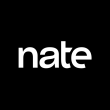Viewpoint: An Open Letter to the On-Demand Economy
 By Brent Warrington, Hyperwallet Systems Inc.
By Brent Warrington, Hyperwallet Systems Inc.
Dear On-Demand Economy,
It’s no secret that 2015 was your year. From groceries to massages, car services to home improvements, last year we learned that there’s a platform for pretty much everything in this brave new world of interconnectivity. That being said, 2015 wasn’t just about unicorn valuations for you. It was also a year of trials and tribulations.
For example, I watched as Homejoy shuttered its doors, overwhelmed by worker attrition. Like everyone else in the tech community, I’ve read the headlines about Uber’s ongoing employment disputes. And, as the the CEO of a company that works closely with on-demand platforms, I’ve had the unique ability to see firsthand what it’s like for people to work (and earn) as a contractor at companies that follow your access-over-ownership business model. It’s not as easy as you make it sound. In fact, without the right tools and support, it can be downright overwhelming.
Which brings us to today. If this independent employment model you’ve been promoting is going to become the new norm for the world’s workforce—and it very well could be—I think you’re going to need some serious help keeping the masses of freelancers on your platforms happy. Solving for supply side satisfaction is critical if your platform is to be successful over the long-term. Now’s the time for you and the surrounding tech community to not just talk about the rise of the independent worker, but to step up and enable their success. Because without them, your next “Uber of x” brainchild? It won’t be another unicorn to add to your stable. It’ll be nothing but an empty icon forgotten on a smartphone screen.
Flexibility as a Foundation
Now look, I understand that you’ve put a lot of time and energy into the positioning of your on-demand business approach, promoting the notion that businesses built on platforms and networks provide workers with more independence, choice, and flexibility. Just look at Uber. Facing a lawsuit that would reclassify its drivers as employees instead of contractors, the company went to lengths to explain in its filing that their application was a “lead generation platform.” The company further argued that the platform is made available to “partners” who may use the Uber App “as much or as little as they want, and accept as many or as few ride requests as they want, whenever they want.” This line of reasoning makes complete sense based on your business model: it exemplifies flexible job access and makes independence a central focus. And Uber isn’t alone. Liberating people from the shackles of traditional employment is practically gospel for any of the hundreds of companies operating in your on-demand space. In fact, you could say the companies you support offer workers the modern version of the American Dream: an easy, flexible way for anyone to find and get compensated for an honest day’s work.
Which all sounds great in theory, but implementing a way of working that is truly flexible and accessible isn’t exactly easy. Barriers and friction absolutely exist: There are issues with onboarding new workers, especially around the upfront collection of sensitive personal information, never mind resource requirements (you can’t well drive for Uber if you don’t have access to a car). The marketplaces that survive and thrive in your economy will be the ones who successfully remove these barriers to entry.
Getting Rid of Gated Entry: Why Bank Accounts Are an Inexcusable Barrier to Entry
Let’s look at an example of obvious friction. Let’s say that, of the estimated 53.7 million people doing freelance work the U.S. right now, most of them are being paid electronically with a direct deposit to a bank account. This is because, when it comes to empowering your army of independent workers, having a bank account with a financial institution is pretty much required; without one, most of your platforms won’t even permit a person to join the service, let alone accept jobs.
Now granted, this isn’t an earthshattering issue for those of us who take our checking accounts for granted. But it’s not exactly flexible, forcing people to accept their earnings in a single manner, is it? If the platforms in your economy are dedicated to providing independence and opportunity to their users, shouldn’t this dedication extend all the way through? Sure, the process of finding work on on-demand platforms is flexible and self-driven, but what about the rest of the working experience? What if, as a worker, I don’t want to use my bank account to accept my funds? Or worse, what if I’m one of the 16.7 million adults in the U.S. (or one of the more than 2 billion in the world) who doesn’t have a bank account in the first place? Where’s the flexibility and independence in that?
Employment, as we know it, is shifting. If you believe that independent work is the way of the future, then how you go about compensating those workers matters, and it matters a lot. You and I both know that legacy payment systems can’t support your growing need for flexibility, choice and self-driven financial management tools. Disruption and innovation are needed to provide the world’s workers—all of them—with the opportunity to contribute to your economy.
So this year, don’t just talk the talk, but walk the walk when it comes to worker flexibility and choice. Let’s extend choice, independence and freedom through the entire worker experience, so that together, we can enable the workforce of the future succeed.
Sincerely,
Brent Warrington, CEO, Hyperwallet Systems Inc.
The CEO of Hyperwallet, Brent Warrington has more than 20 years of experience in the financial services industry building and leading transformative fintech and payments companies. Hyperwallet’s purpose-built payment platform empowers new economy businesses to easily, cost-effectively and transparently distribute global and domestic payouts to independent workers through a variety of payment methods. Brent can be reached at [email protected].
In Viewpoints, payments professionals share their perspectives on the industry. Paybefore’s goal is to present many points of view to offer readers new insights and information. The opinions expressed in Viewpoints are not necessarily those of Paybefore.











































